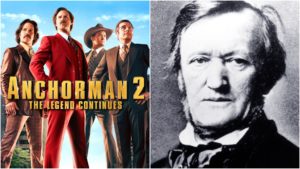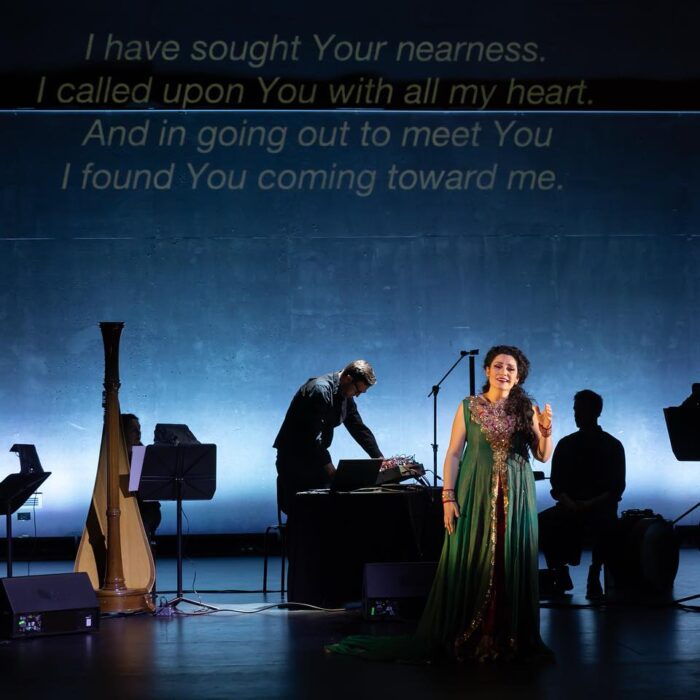
Opera Meets Film: The Odd Inclusion of ‘Tristan und Isolde’s’ Liebestod in ‘Anchorman 2: The Legend Continues’
By David SalazarWith this feature, we have often talked about the strong use of opera in films to support and substantiate the filmmaker’s intentions. After all, the choice to use opera in a particular moment is a creative decision with a strong intention.
But sometimes, such choices don’t quite come off because their intentions aren’t quite clear. And this brings us to the topic of this week’s “Opera Meets Film,” “Anchorman 2: The Legend Continues.”
Adam McKay’s Will Ferrell vehicle is not meant to be taken seriously, its characters are shown to succeed throughout their own stupidity. The film plays everything for laughs, seriousness not really on any of the creators’ minds. Whether the film is good or not is not the purpose of this piece (there are people that love the humor McKay employs throughout with his star-studded cast), but whether or not McKay’s choice of inserting an opera excerpt in the film works.
The choice is the Liebestod of Wagner’s “Tristan und Isolde,” one of the transcendent moments in all of music. McKay employs it in his film near the middle of the movie when hero Ron Burgundy has reached the apex of his career. He has produced tremendous ratings, has won over a new lover, and is being celebrated by GNN at a big party. Suddenly, he appears on an ice skating rink, twirling about in celebration. At the climax of this scene, as he twirls in slow motion, the music switches to the Liebestod before he ultimately falls on his face and goes blind.
The choice of Wagner’s music or any opera, in general, is rather strange, given that the film doesn’t really employ opera at any other point in the narrative. There is no setup or hint of it, the soundtrack veering in a wildly different direction. Moreover, the excerpt is so brief and even muddled by the narration over it, that it doesn’t quite register any potent meaning within the context it appears.
There might be some interpretations for the use. The narrator equates this moment to Ron Burgundy flying too high like Icarus and preparing for a fall. Obviously “Tristan und Isolde” doesn’t really work on a symbolic level, though one might intuit that McKay’s choice here is to give the narrator’s mythological monologue a sense of deeper introspection. Opera, pre-conceived as a higher art form, might suit as a means of adding greater weight and depth to the words of the narrator given the current moment unraveling. But why use an operatic voice when it has never appeared before? Why not let an original musical score take over for this? There is no establishment of the Liebestod as a leitmotif in the film, nor is it ever established as anything of significance for the world of the story.
Some might point out that the choice here is intertextual. After all, Ferrell appeared in another comedy called “Blades of Glory” where he is a professional figure skater. That film employs the voice of Andrea Bocelli in a few spots and its climax features vocal writing to underscore the emotion of the scene. And while one might make the argument that McKay might be making a subtle nod to that film, that potential intention still doesn’t quite connect for a number of reasons. One might assume that Will Ferrell fans saw “Blades of Glory” before “Anchorman 2,” but that doesn’t mean anyone else would get the reference. The pieces of music have nothing in common outside of being choral musical. But the biggest reason goes back to why the music doesn’t quite have any impact on its own, even without the context of “Blades of Glory” – it doesn’t feel like an organic part of the story it wants to tell.
Not even as a piece of comedy could one argue that the sudden emergence of the Liebestod adds humor to the scene. Without it, the scene would still be as humorous simply from the acting and context from which the ice skating appears. Audiences are more likely to question what the music is doing there in the first place before they laugh about it.


